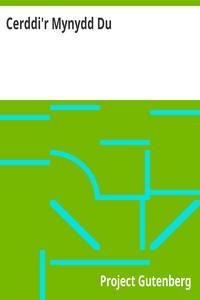Read this ebook for free! No credit card needed, absolutely nothing to pay.
Words: 48114 in 16 pages
This is an ebook sharing website. You can read the uploaded ebooks for free here. No credit cards needed, nothing to pay. If you want to own a digital copy of the ebook, or want to read offline with your favorite ebook-reader, then you can choose to buy and download the ebook.
INTRODUCTION. PAGE
The problem stated--Sketch of Lyly's life 1
EUPHUISM 10
THE FIRST ENGLISH NOVEL 64
LYLY THE DRAMATIST 85
CONCLUSION 132
Lyly's Character--Summary.
INDEX 143
INTRODUCTION.
Since the day when Taine established a scientific basis for the historical study of Art, criticism has tended gradually but naturally to fall into two divisions, as distinct from each other as the functions they respectively perform are distinct. The one, which we may call aesthetic criticism, deals with the artist and his works solely for the purpose of interpretation and appreciation, judging them according to some artistic standard, which, as often as not, derives its only sanction from the prejudices of the critic himself. It is of course obvious that, until all critics are agreed upon some common principles of artistic valuation, aesthetic criticism can lay no claim to scientific precision, but must be classed as a department of Art itself. The other, an application of the Darwinian hypothesis to literature, which owes its existence almost entirely to the great French critic before mentioned, but which has since rejected as unscientific many of the laws he formulated, may be called historical or sociological criticism. It judges a work of art, an artist, or an artistic period, on its dynamic and not its intrinsic merits. Its standard is influence, not power or beauty. It is concerned with the artistic qualities of a given artist only in so far as he exerts influence over his successors by those qualities. It is essentially scientific, for it treats the artist as science treats any other natural phenomenon, that is, as the effect of previous causes and the cause of subsequent effects. Its function is one of classification, and with interpretation or appreciation it has nothing to do.
In the second place he was the author of the first novel of manners in the language.
And in the third place, and from the point of view of Elizabethan literature most important of all, he was one of our very earliest dramatists, and without doubt merits the title of Father of English Comedy.
Free books android app tbrJar TBR JAR Read Free books online gutenberg
More posts by @FreeBooks

: Perth'in kaupungin kaunotar by Scott Walter Krohn Julius Translator - Historical fiction; Merchants Fiction; Social classes Fiction; Nobility Fiction; Scotland History Robert III 1390-1406 Fiction; Perth (Scotland) Fiction


: Sense from Thought Divide by Clifton Mark Van Dongen H R Illustrator - Science fiction; Psychic ability Fiction Science Fiction








